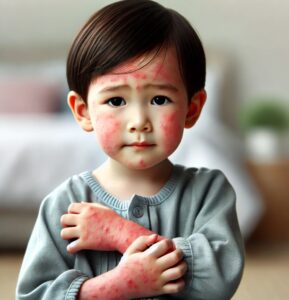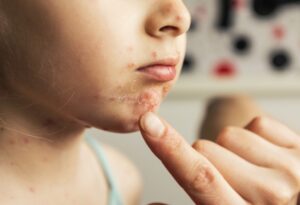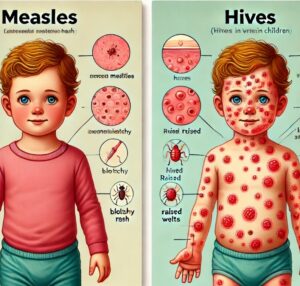Summer is one of the favorite seasons for children, as it provides the best opportunity for outdoor activities. However, with rising temperatures, bug bites become an important health issue for parents to address. Mosquitoes, ticks, fleas, and other small insects can cause significant discomfort for kids during the summer. Understanding how to prevent and manage these bites can help parents better protect their children's health.
- Common Summer Bug Bites
Mosquito Bites
Mosquitoes are the most common source of bug bites in the summer. Their bites can cause localized itching and swelling, and in some cases, may trigger allergic reactions or transmit diseases like dengue fever and West Nile virus.
Tick Bites
Ticks are typically found in grassy and wooded areas. A tick bite can potentially lead to diseases such as Lyme disease. The area around the bite may develop a red rash that gradually expands, resembling a "target" shape.
Flea Bites
Fleas are often found on pets but can also bite humans. Flea bites usually result in red spots and small welts on the skin, accompanied by intense itching.
- Methods for Preventing Bug Bites
Choose Appropriate Clothing
When going outdoors, dress children in long-sleeve shirts and long pants to reduce the chance of insect bites. This is especially important when engaging in activities in grassy or wooded areas.
Use Insect Repellents
Apply insect repellents suitable for children, such as those containing DEET (N,N-diethyl-meta-toluamide). Always follow the instructions on the product and avoid applying it to children's faces and hands.
Maintain a Clean Environment
Regularly clean up any standing water around the home to prevent mosquito breeding. Check children's clothing and toys to ensure they are free from ticks or fleas.
Avoid High-Risk Areas
Reduce children's time in areas where ticks are prevalent, such as forests and meadows. After returning home, inspect children's skin for any ticks and remove them promptly if found.
- Managing Bug Bites
Relieve Itching
For mosquito bites, use antihistamine creams or allergy medications to alleviate itching and swelling. Cold compresses can also help soothe discomfort.
Handle Tick Bites
If a tick bite is discovered, carefully remove the tick using specialized tick tweezers, making sure the entire tick, including its head, is removed. Clean the bite area with soap and water, and apply an antiseptic.
Address Flea Bites
Apply antihistamine creams to flea bites, keep the affected skin clean, and avoid scratching to reduce the risk of infection.
Seek Medical Help
If a child shows severe allergic reactions, such as difficulty breathing or facial swelling, seek immediate medical attention. Additionally, if symptoms like fever or headaches occur after a tick bite, consult a healthcare provider to check for Lyme disease or other infections.
Summer is a wonderful time for children to enjoy outdoor activities, but it also comes with the risk of bug bites. By taking appropriate preventive measures and managing bites effectively, parents can protect their children's health and allow them to enjoy a fun and safe summer. If severe reactions occur, always seek professional medical advice.
We hope this guide helps parents understand and address the issue of summer bug bites in children, ensuring a safe and enjoyable summer for their kids.













